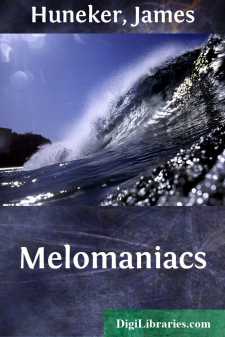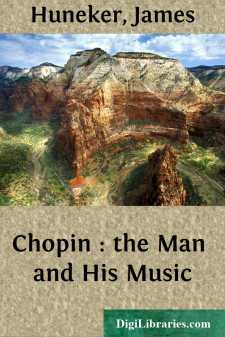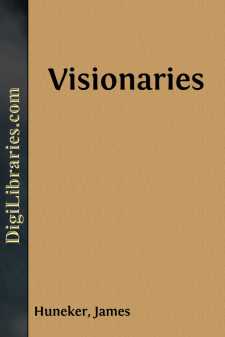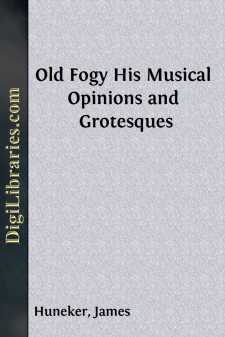Categories
- Antiques & Collectibles 13
- Architecture 36
- Art 48
- Bibles 22
- Biography & Autobiography 815
- Body, Mind & Spirit 144
- Business & Economics 28
- Children's Books 18
- Children's Fiction 14
- Computers 4
- Cooking 94
- Crafts & Hobbies 4
- Drama 346
- Education 58
- Family & Relationships 59
- Fiction 11833
- Games 19
- Gardening 17
- Health & Fitness 34
- History 1378
- House & Home 1
- Humor 147
- Juvenile Fiction 1873
- Juvenile Nonfiction 202
- Language Arts & Disciplines 89
- Law 16
- Literary Collections 686
- Literary Criticism 179
- Mathematics 13
- Medical 41
- Music 40
- Nature 179
- Non-Classifiable 1768
- Performing Arts 7
- Periodicals 1453
- Philosophy 65
- Photography 2
- Poetry 896
- Political Science 203
- Psychology 44
- Reference 154
- Religion 515
- Science 126
- Self-Help 85
- Social Science 82
- Sports & Recreation 34
- Study Aids 3
- Technology & Engineering 59
- Transportation 23
- Travel 463
- True Crime 29
James Huneker
James Huneker (1857–1921) was an American writer, music critic, and essayist known for his vivid and insightful commentary on arts and culture. He wrote extensively on a range of subjects, including literature, music, and visual arts, and was particularly influential in introducing European modernist ideas to American audiences. Among his notable works are "Chopin: The Man and His Music" and "Egoists: A Book of Supermen." Huneker's writing style was characterized by wit, erudition, and a deep passion for the arts.
Author's Books:
Sort by:
by:
James Huneker
THE GENIUS OF JOSEPH CONRAD I In these piping days when fiction plays the handmaid or prophet to various propaganda; when the majority of writers are trying to prove something, or acting as venders of some new-fangled social nostrums; when the insistent drums of the Great God Réclame are bruising human tympani, the figure of Joseph Conrad stands solitary among English novelists as the very ideal of a...
more...
by:
James Huneker
THE LORD'S PRAYER IN B At the close of the first day they brought Baruch into the great Hall of the Oblates, sometime called the Hall of the Unexpected. The young man walked with eyes downcast. Aloft in the vast spaces the swinging domes of light made more reddish his curly beard, deepened the hollows on either side of his sweetly pointed nose, and accented the determined corners of his firmly...
more...
by:
James Huneker
I. POLAND:—YOUTHFUL IDEALS Gustave Flaubert, pessimist and master of cadenced lyric prose, urged young writers to lead ascetic lives that in their art they might be violent. Chopin's violence was psychic, a travailing and groaning of the spirit; the bright roughness of adventure was missing from his quotidian existence. The tragedy was within. One recalls Maurice Maeterlinck: "Whereas most...
more...
by:
James Huneker
I A MASTER OF COBWEBS I Alixe Van Kuyp sat in the first-tier box presented to her husband with the accustomed heavy courtesy of the Société Harmonique. She went early to the hall that she might hear the entire music-making of the evening—Van Kuyp's tone-poem, Sordello, was on the programme between a Weber overture and a Beethoven symphony, an unusual honour for a young American composer. If...
more...
by:
James Huneker
INTRODUCTION My friend the publisher has asked me to tell you what I know about Old Fogy, whose letters aroused much curiosity and comment when they appeared from time to time in the columns of The Etude. I confess I do this rather unwillingly. When I attempted to assemble my memories of the eccentric and irascible musician I found that, despite his enormous volubility and surface-frankness, the old...
more...






